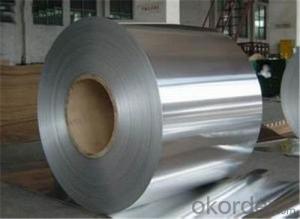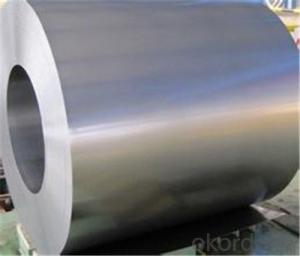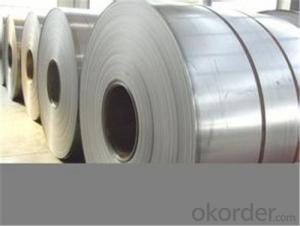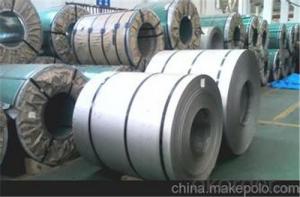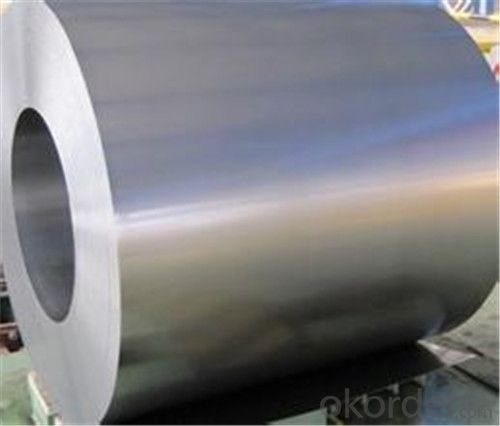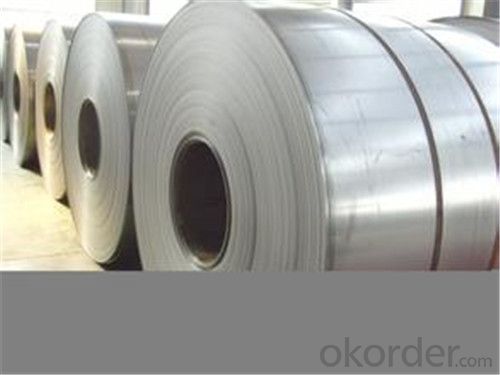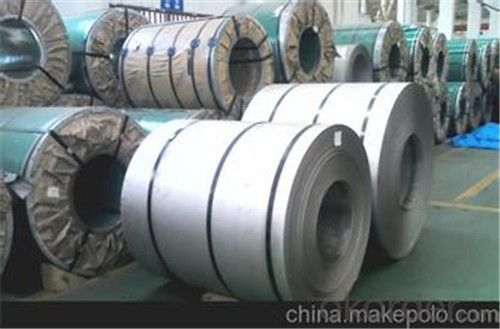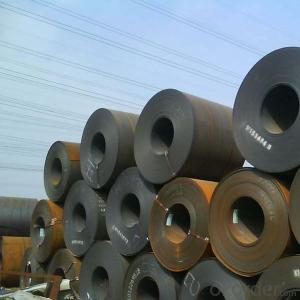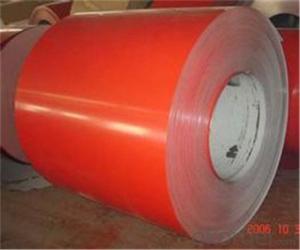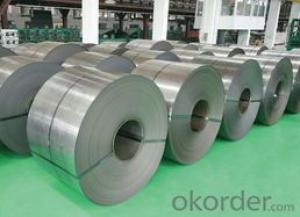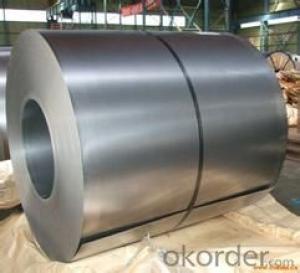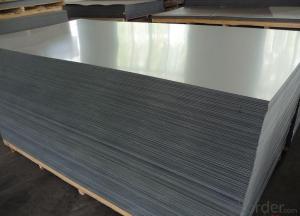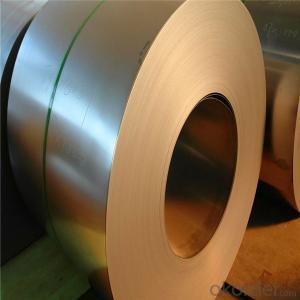Cold Rolled Steel Coil/Sheets with High Quality from China
- Loading Port:
- Tianjin
- Payment Terms:
- TT OR LC
- Min Order Qty:
- 200 m.t.
- Supply Capability:
- 89000000 m.t./month
OKorder Service Pledge
OKorder Financial Service
You Might Also Like
Description of cold rolled steel coil :
The raw material of cold rolled steel coil/sheet is high quality hot rolled product, and after pickling, kinds of new technology and new process of global cold rolling production have been applied. Therefore the manufacturing, home appliance, automobile etc.
Specification of cold rolled steel coil :
standard | AISI, ASTM, DIN, GB, JIS |
Steel Grade | Q195/Q195L/st12/dc01/spcc |
Thickness | 0.15-1.5mm |
Width | 500-914mm |
Length | coil |
Place of Origin | Shandong,china(mainland) |
Producing ablity | 500,000 Tons/month |
Type of payment | T/T, L/C |
Packing | As per customer's requirement |
Delivery | 30days after contract |
Price | FOB&CIF |
MOQ | 20Tons |
Packaging & delivery of cold rolled steel coil :
Packaging Detail: | Oil coated, metal shell and anti-rust paper with corner protected by sheet or coil |
Delivery Detail: | 30 days after receiving deposit or L/C |
Application of cold rolled steel coil :
1. Refrigerators, cabinets, power distribution baords and drums.
2. Automobile floor and roof panels.
3. Automobile fenders and quarter panels
4. Automobile fenders and quarter panels
Images of cold rolled steel cold rolled steel coil:
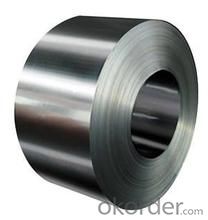
FAQ
1.What's your MOQ?
50MT, it is for one container.
2.Whether your company have QC teams?
Yeah, sure, our QC team is very important, they will keep the quality control for our products.
3. What's your normal delivery time?
Our delivery time about 10-20days for standard sizes, if you have other requirements like hardness and width ,it is about 20-40days. But don't worry ,we also try our best for the
- Q: im buying a new guitar,, it has a built in tuner and its semi acoustic (can be plugged into an amplifier) ,, im trying to choose which strings are better ,, steel or nylon..?
- That's not an option Guitars are designed for either nylon or steel strings. They aren't interchangeable. Putting steel strings on a guitar designed for nylon strings WILL destroy the guitar. If you've already picked out the guitar you want, then you've already made your decision about nylon or steel.
- Q: How are steel coils used in the manufacturing of fasteners?
- Steel coils are used in the manufacturing of fasteners by being processed and shaped into various forms, such as screws, bolts, and nails. The coils are fed into machines that cut, shape, and thread the steel to create the desired fastener. This process allows for efficient mass production and ensures the strength and durability of the fasteners.
- Q: What are the different types of steel coil storage systems used during processing?
- There are several types of steel coil storage systems commonly used during processing, including coil racks, coil saddles, coil cradles, coil pads, and coil blocks. These systems are designed to safely store and handle steel coils, ensuring efficient processing operations and minimizing the risk of damage or accidents.
- Q: What are the common size limitations for steel coils?
- The common size limitations for steel coils vary depending on the specific requirements of the industry or application. However, there are some general size limitations that are commonly followed in the steel manufacturing and distribution industry. The width of steel coils typically ranges from as narrow as 0.25 inches (6.35 mm) to as wide as 72 inches (1828.8 mm). This wide range allows for versatility in various applications, from automotive parts to construction materials. The thickness of steel coils can also vary significantly, usually ranging from 0.006 inches (0.15 mm) to 0.5 inches (12.7 mm). Thinner coils are often used in applications that require lighter weight and flexibility, while thicker coils are commonly utilized in heavy-duty applications that demand strength and durability. The weight of steel coils is another factor to consider, especially for transportation and handling purposes. Typically, steel coils can weigh anywhere from a few hundred pounds to several tons. The weight limitations are dependent on factors such as the size of the coil, the steel grade, and the equipment used for transportation and storage. Furthermore, the outer diameter of steel coils can also have limitations. It usually ranges from 24 inches (609.6 mm) to 72 inches (1828.8 mm). The inner diameter, on the other hand, can vary from 16 inches (406.4 mm) to 24 inches (609.6 mm). These dimensions are critical for ensuring compatibility with processing equipment and storage racks. It is important to note that these size limitations are not fixed and can be customized based on specific requirements. Steel manufacturers and distributors often work closely with their customers to determine the optimal size and dimensions of the coils to meet their specific needs and ensure efficient handling and processing.
- Q: Steel or stainless steel
- Steel often has impurities that can generate fumes, which cause a fever identical to smoke inhalation. You always need to be concerned about what you are breathing around hot metal.
- Q: What are the common industry standards for steel coils?
- Steel coils in the industry have varying standards depending on the region and specific use. However, there are widely accepted standards used in the steel industry. Among the most frequently used standards for steel coils is the American Society for Testing and Materials (ASTM) standard. ASTM has created various specifications for different types of steel coils, including hot-rolled, cold-rolled, and galvanized coils. These specifications outline the mechanical and chemical properties that the steel must meet, as well as dimensions, tolerances, and testing requirements. Apart from ASTM, international organizations like the International Organization for Standardization (ISO) and the European Committee for Standardization (EN) have also established standards for steel coils. ISO standards, such as ISO 3574 and ISO 5952, offer guidelines for general requirements, dimensional tolerances, and mechanical properties of steel coils. Similarly, EN standards like EN 10130 and EN 10131 specify the characteristics and tolerances for cold-rolled steel coils. Moreover, industry-specific organizations and associations may have their own standards for steel coils. For instance, the American Iron and Steel Institute (AISI) has developed specific standards for various steel products, including coils. These standards cover aspects including chemical composition, mechanical properties, and surface finish. It's worth noting that steel coil standards can also be determined by the intended use. Industries like automotive, construction, and manufacturing may have specific requirements that surpass general standards. In such cases, customers and manufacturers may refer to industry-specific standards or collaborate to define custom specifications. In summary, while there are several common industry standards for steel coils, it is crucial to consult the specific standards and requirements applicable to the region and application in question to ensure compliance and quality.
- Q: How are steel coils used in the production of automotive body panels?
- Steel coils are used in the production of automotive body panels by being processed and shaped into the desired form through techniques like stamping, cutting, and bending. These coils provide the necessary strength and durability required for the structural integrity of the body panels, ensuring the safety and performance of the vehicle.
- Q: I have a tiara and it oxidized and I'm not sure what material it is. I know it it isn't metal so i was wondering if is steel? Also if it's steel, can I do something to clean it?
- Yes - Steel can oxidize, its most commonly called rust Steel is a metal. Depending on the level of oxidation, you might be able to polish it with very fine steel wool. If is is really bad, then you might need a chemical cleaner such as Naval Jelly, which can be found at the hardware store. But the Naval Jelly might discolor the metal, so then you might need to polish it afterward to return its finish.
- Q: Ok.. I was wondering if it's possible for me to recycle baked bean cans (steel)? And if so in Western Australia (that's where I live)?I love baked beans... and I also like skateboarding, so I thought if I kept my baked bean cans, that I could get them recycled somewhere and turn it into something I could skate on (rail, etc.). I'm just curious to know if all this is possible...Cheers. :)
- Steel is one of the most recycled materials on the planet... Unless you know a recycler/steel refiner/manufacturer however, it would be mighty difficult for you to have someone melt down all your baked bean (a somewhat American dish, I'd say) cans. Plus, think how many baked beans you'd have to eat to be able to build anything of substance. Don't know where you would take it in Australia - I'm in the US where a lot of municipalities collect mixed recyclables.
- Q: Can steel coils be used in the production of automotive parts?
- Yes, steel coils can be used in the production of automotive parts. Steel coils are often used in the manufacturing process of various automotive components such as body panels, frames, chassis, suspension parts, and engine parts. The steel coils are typically processed through various methods such as cutting, stamping, bending, and welding to shape them into the desired automotive parts. Steel is a preferred material for automotive parts due to its strength, durability, and resistance to corrosion. Moreover, steel coils are available in different grades and thicknesses, allowing manufacturers to tailor the material properties to meet specific requirements for different automotive applications. Overall, steel coils play a critical role in the production of automotive parts, contributing to the performance, safety, and longevity of vehicles.
Send your message to us
Cold Rolled Steel Coil/Sheets with High Quality from China
- Loading Port:
- Tianjin
- Payment Terms:
- TT OR LC
- Min Order Qty:
- 200 m.t.
- Supply Capability:
- 89000000 m.t./month
OKorder Service Pledge
OKorder Financial Service
Similar products
Hot products
Hot Searches
Related keywords
